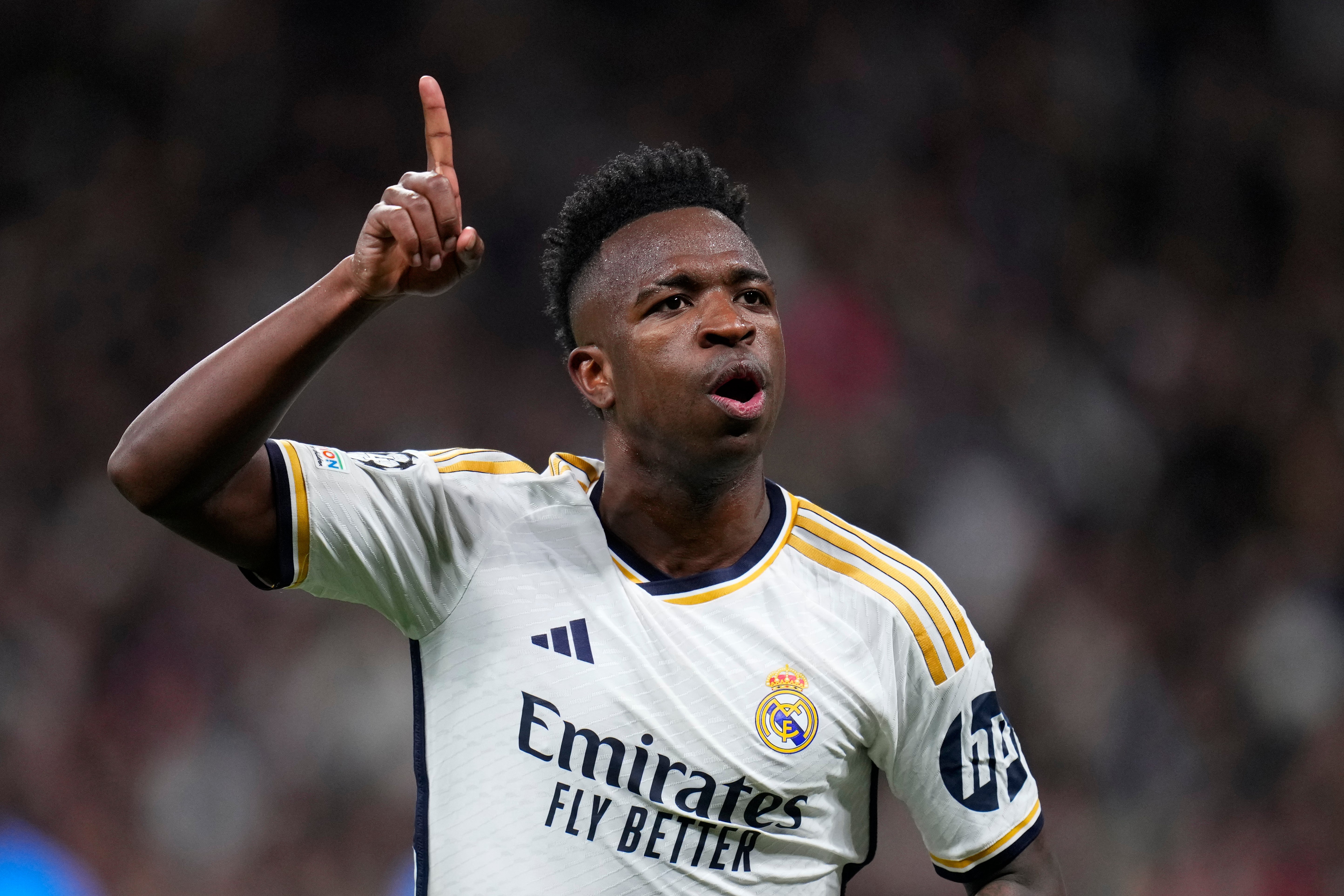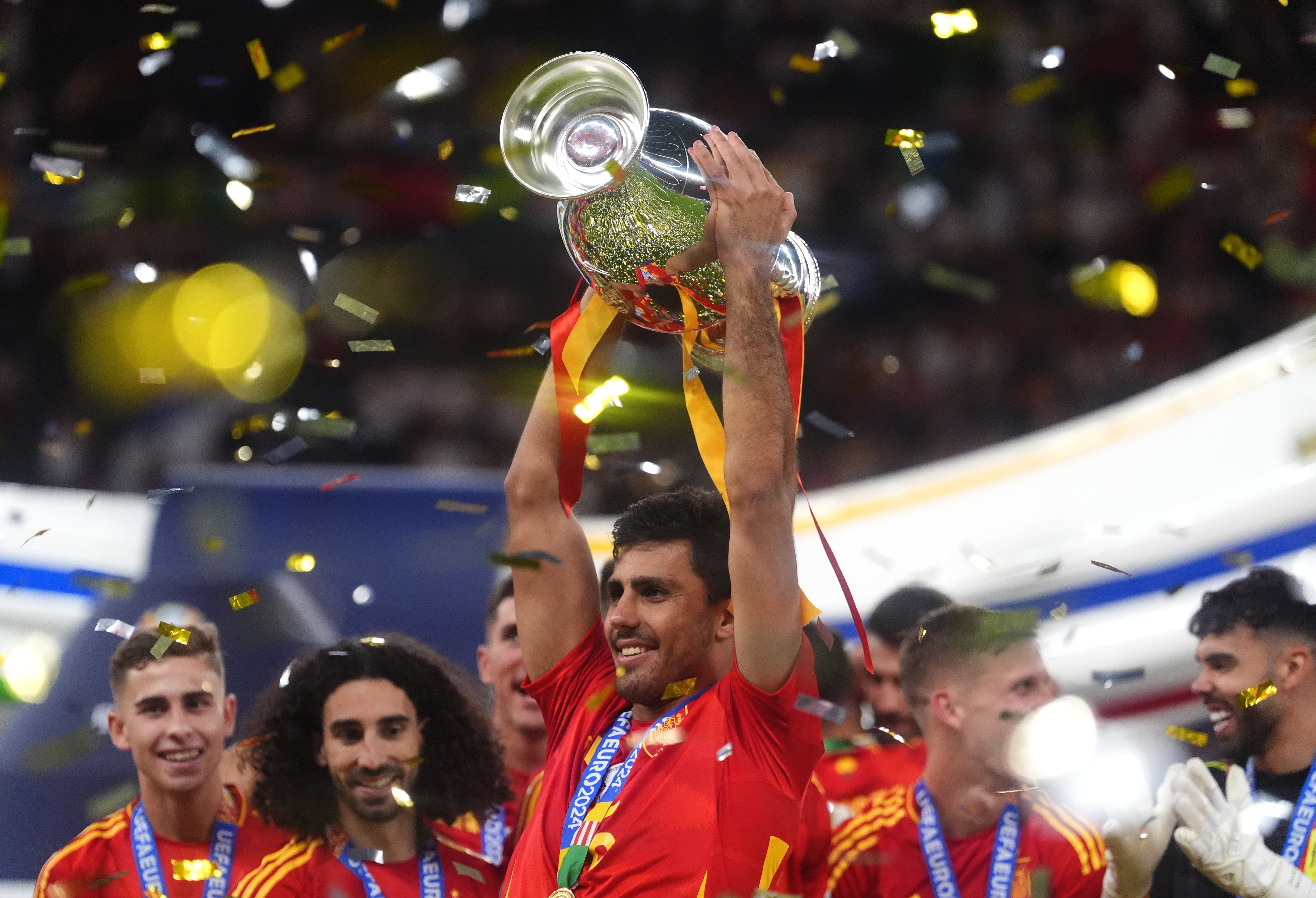Although Rodri became just the second Spanish men’s player to lift the Ballon d’Or, the country’s premier club was barely anywhere to be seen. Despite more than one award going to the club or individuals within, nobody representing Real Madrid appeared in Paris as a dismal few days for the European champions got worse. At Manchester City, that knowledge added to the satisfaction of a worthy first ever club winner. The relationship between the clubs, especially at that media level, is poor.
It all illustrates the increasing intrigue around an award that is supposed to be so singular, in rewarding football’s dominant individual player in a calendar year. And then some.
France Football had nevertheless made a point of telling media that the Ballon d’Or decision absolutely wouldn’t leak, only for Vinicius Junior’s camp to get wind on Sunday evening that he wouldn’t be winning the award. Connections in the Spanish football federation were stating that Rodri had won it. The player himself was said to be extremely confident, and talking about it to teammates.
It was a shock to Madrid, since they had been so confident their odds-on favourite was going to win it that they were preparing to send a party of 50 to the ceremony in Paris, with a five-hour broadcast planned for their official television station. Club president Florentino Perez immediately scrapped all of that on finding out.
Some of the more formal explanations given were that the club calendar is absolutely packed at the moment, and that Madrid “have to use their time well”. Players get little enough time off as it is. Some of the more informal accompaniments to that were “we’re not going there just to pay tribute to France Football” and “we’re busy enough as it is”. The 4-0 home humiliation to Barcelona admittedly made the decision even easier. The message was to focus, and certainly not get hung up on such stories, even if that looks like precisely what happened.
It shows the problems with trying to make an individual award like this become “football’s Oscars”. There’s no “awards season” in the modern game. There’s just a perpetual calendar, that might have even more egos than Hollywood.
In assessing this year’s calendar as a whole, however, it is hard to think of a season where such an award has had two claims for the title that were so worthy. Not even Leo Messi and Cristiano Ronaldo had years when it was really neck and neck. One generally outdid the other by a surprisingly considerable margin.
That is not something you can say with either Rodri or Vinicius, which is why both would have been worthy winners.

No one can really complain about the midfielder’s victory, despite Madrid’s protestations. Rodri is the outstanding player in his position, at a performance level that has also served to symbolise an entire era of football. Very few can play that pivot role like Rodri. It is arguably the key positions in one of the world’s best club sides, at City, and now Europe’s best international team, in Spain.
Through that, Rodri has managed to do what not even Xavi, Andres Iniesta or Sergio Busquets could in the country’s glory era. Those players were admittedly up against Messi and Ronaldo, mind, even when winning the World Cup.
Rodri has now largely won it because he drove Spain’s return to glory. He of course scored a crucial equaliser in the last-16 match against Georgia, but what was most impressive about his displays is how he just seems to absorb attacks in entire areas of the pitch. Rodri individually amplifies the football of both Spain and City. He is essential to that Pep Guardiola tactical ideology, a status that has only been emphasised now he’s so unfortunately injured. Even the view among some City players is that Rodri is more important to the team than Erling Haaland.
Some people outside would go even further. Figures at rival clubs insist he is the most influential pure midfielder in the Premier League since Roy Keane.
It still says much that Rodri arguably had an even better claim last year, when he scored the key goal in the Champions League final.
That is of course what Vinicius did this year, to follow on from a series of crucial match-winners. The Brazilian has developed into the ultimate big-game player, as well as an utterly devastating forward. Vinicius can change a game in an instant, literally. His ability to turn defence into attack – and often a goal – in mere seconds has become one of the most potent weapons in football.

The Brazilian is as good in his position as Rodri is in his. Perhaps one crucial difference is that there are many more wide forwards in the world – with Madrid themselves having an abundance – while there are so few players like Rodri.
Above anything, though, it is really the difference between a defining player and a decisive player.
Both have historic claims. Only one can win.
Madrid were just utterly convinced it was their man. All of the talk in the build-up suggested as much. Some of the talk in the aftermath has instead involved club figures going through the list of last year’s voters, and assessing their credentials. Against that, there has even been commentary in Spain about how this should be a celebratory moment for the country, given they have finally produced a successor to 1960’s Luis Suarez. Instead, the national media has been largely indignant, mostly due to the influence of Madrid.
As petty as it has become, and as selfishly entitled as Madrid look, it all shows how much this matters to them. It has commercial value. It has historic status. Perez wants to be seen to produce and possess Ballon d’Or winners. This would have been Madrid’s 13th, taking them above Barcelona’s 12, from a ninth different player. Vinicius instead must wait, as Jude Bellingham -third in this year’s voting – and Kylian Mbappe look on. Some close to the dressing have even quipped that this defeat might help squad dynamics, given that it suddenly has more egos.
An irony is that both of these players, Vinicius and Rodri, are largely devoid of such arrogance. This selflessness in play is how the Spanish midfielder has given City their first Ballon d’Or, after Kevin De Bruyne finished third and Haaland second in consecutive years. They have finally got there, which has a real value to their Abu Dhabi owners, too. It is all about putting the club on that international level, as well as that place in history.
For all that, it’s long been apparent that the Ballon d’Or occupies a strange place in the game’s present. It’s an individual award as the sport has become infinitely more systemised. And yet this has counter-intuitively given it even more commercial value, more profile.
There can still be no doubting the individual importance of both Rodri and Vinicius. They stand above the strange politics. Rodri, justifiably, stands on the podium.
It’s not that there are few midfielders like him in the modern game. There are few players like him.
#Vinicius #Junior #deserved #win #Ballon #dOr #problem #Rodri

















